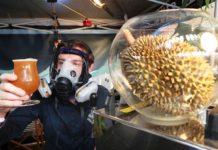In April, the Government of Thailand closed all bars and nightclubs in an attempt to curb the pandemic.
Unfortunately, this created another public health crisis in the form of a spike in chemsex cases according to the charity Thomas Reuters Foundation.
What is chemsex?
It is the practice of having consensual and enhanced gay sex with multiple partners while under the influence of certain drugs like crystal meth, mephedrone, and GHB.
It has the potential to be a greater challenge as it is more potent than having a few beers with friends.
Chemsex users are also at risk for drug addiction and overdoses, as well as mental health problems, HIV infection, and violence including physical assault and more.
And it is inherently a target-rich environment to pass the COVID-19 coronavirus around.
Although the media has implicated western tourists are also participating in chemsex in Thailand, in reality, there are virtually no foreign visitors in the country right now, and no record of any arrested is available.
Campaigners say their concerns over chemsex touch off the anti-LGBT and attitudes many gay Thais continue to face. Police and officials often lack knowledge in chemsex, snarling investigations into its effects.
Service providers that offer chemsex counselling are also few and far between, activists say, and many people feel reluctant to use them, fearful of stigma.
While Thailand does not have any official data on chemsex, the Bangkok Metropolitan Administration, the capital’s local government, says 90 per cent of gay men who used its healthcare services have experimented with chemsex.
Many of the men, its figures say, are aged between 20 and 40.
Similar fears over the lockdown giving rise to chemsex spikes were raised in Britain, where around two in 10 gay men broke shelter-in-place orders to attend chemsex parties.




































